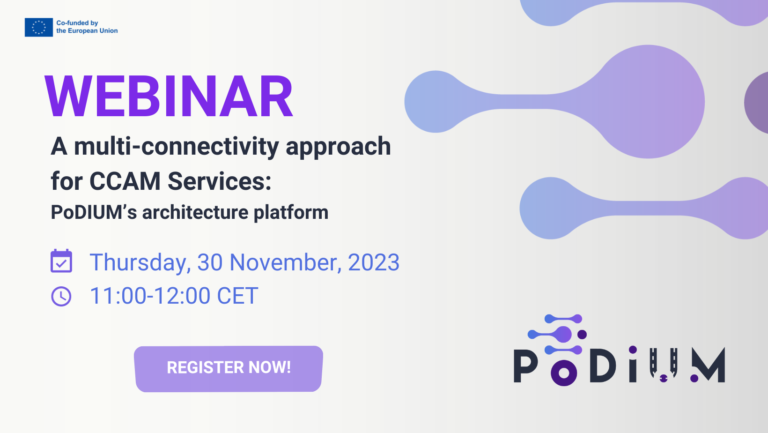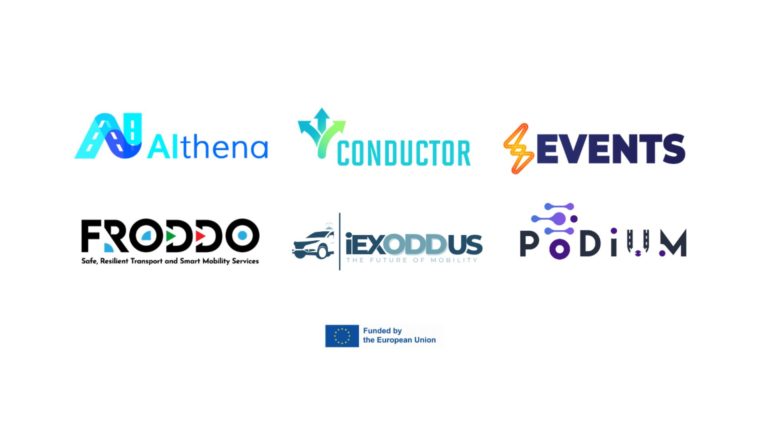PoDIUM
In PoDIUM, using and enhancing the facilities of 3 well-equipped Living Labs in Germany, Italy and Spain we define a rich set of demanding CCAM UCs to identify and assess all the connectivity and cooperation enablers and needs that will allow the proposed higher levels of automation. Building on the proposed UCs (urban and highway – incl. cross-border setups), which will be demonstrated and validated in real-life conditions, PoDIUM will tackle all the different requirements for availability and performance of connectivity as well as the different cooperation enablers per UC.
The proposed UCs aim to advance a set of key technologies both in the physical and digital part of the infrastructure. A multi-connectivity approach is followed to ensure reliability, availability and redundancy of the PDI system (i.e., ITS-G5, 5G, LTE, 5G mmWave, 60GHz-WiFi, etc.). As part of the proposed PDI system, a distributed, interoperable and hybrid (MEC and cloud-based) data management environment will be implemented, which will include suitable advanced environment perception models and digital twins to facilitate seamless and efficient exchange of data (in low latency), thus enabling real-time analytics and opening up new business opportunities. Software integrity and data truthfulness of external data are important aspects that will be considered throughout the PDI to address existing gaps.
New and standardised C-ITS messages will be integrated to support advanced functionalities, whereas new designs of RSUs and OBUs will allow advanced environmental modelling and digital twins based on locally generated data. Last but not least, a major focus will be laid on the integration of VRUs in the overall PDI. All those elements will be integrated under the umbrella of the three layered PoDIUM reference architecture, which is flexible and applicable in different road environments based on the available infrastructure equipment enabling different kinds of services.


